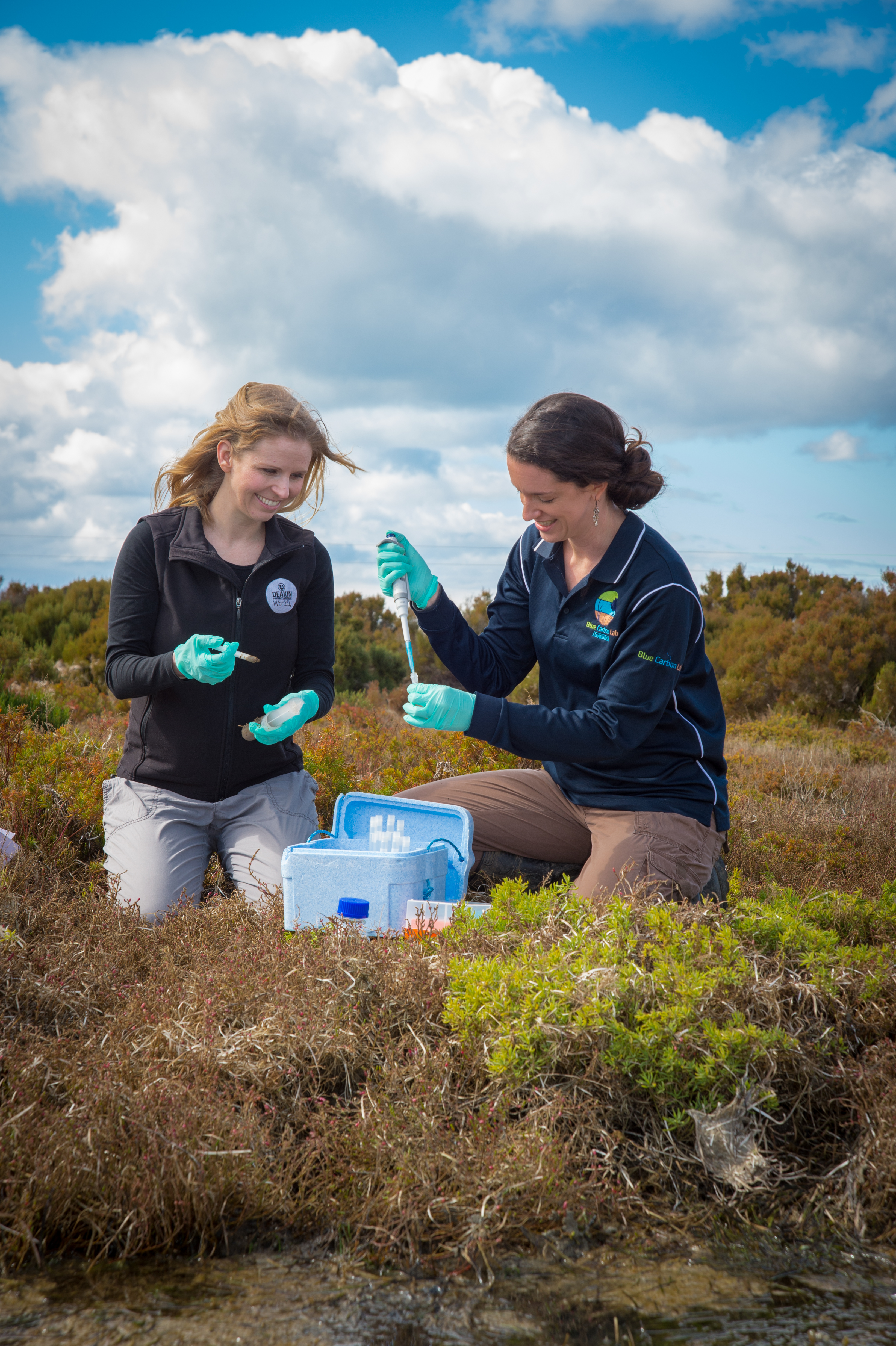The Blue Carbon Lab is about to embark in a 3 year program to disentangle the mechanisms underpinning the formation and stabilisation of coastal blue carbon.
The program has been funded by the Australian Research Council (ARC) Discovery grant scheme and will combine advanced analytical chemistry with environmental microbiology to examine the composition, formation and dynamics of blue carbon in a range of coastal ecosystems.
‘Blue Carbon’ is organic carbon stored within coastal vegetated ecosystems. It is estimated that each hectare of blue carbon ecosystem lost has an equivalent impact of losing between 10 and 40 hectares of tropical forest in terms of carbon emissions, mostly due to the extremely long-term carbon storage in blue carbon soils. Despite the impact of blue carbon, we know very little about the mechanisms responsible for the retention of carbon in these environments.
This project tackles a great mystery of the blue carbon cycle: how is some coastal carbon remineralised into CO2 by microbes within seconds/minutes, while other carbon escapes microbial attack and becomes sequestered for millennia?
Knowledge of this process is critical to understanding the dynamics of blue carbon cycling and effectively managing Australia’s coastal vegetated ecosystems for maximum carbon offsets.
The ARC Discovery grant is led by the Director of the Blue Carbon Lab, A/Prof Peter Macreadie, in collaboration with Prof Rod Connolly (Griffith University), Dr Jeff Baldock (CSIRO), Prof Carlos Duarte (KAUST), A/Prof Jennifer Bowen (Northeastern University) and Dr Stacey Trevathan-Tackett (Blue Carbon Lab, Deakin).

